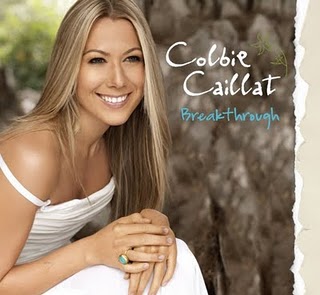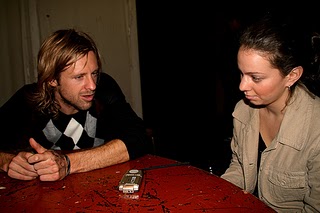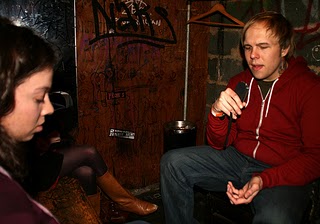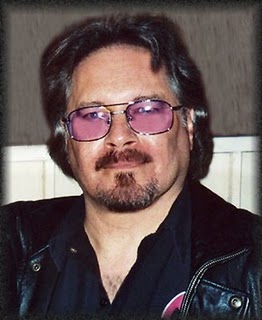I’ve been getting many comments and emails regarding my recent interview on Jemsite. I must say, it’s a little strange to be the one answering the questions instead of asking them. Fun, nonetheless. I figured it’d be a good idea to have the full interview featured on the blog so you can learn more about me, how You Sing, I Write began and some of my musical influences. Thanks again to Ava for the interview! Read below for Jemsite’s full write-up.
You Sing, I Write
By Ava
 Annie Reuter is making her music dreams come true!
Annie Reuter is making her music dreams come true!
And she’s not even a performer.
What she is, though, is an excellent writer and she’s used that talent to start an entertaining and fun music blog based on her passion for the craft.
As a friend of Annie’s from college, I watched her transform her love for writing and her love for music into the popular blog she has today. I remember when she wrote hundreds of e-mails to friends asking for help with coming up with a name. Hundreds of interviews, music critiques, concert reviews, band members, guitar players, and musicians later–You Sing, I Write is one of the most recognizable blogs on the online music blog scene today.
I had the opportunity to talk to Annie about the creation and inception of the blog and her wonderful adventures and work.
Here’s what she had to say:
Why the motivation to start a music blog?
In college I majored in Journalism and wrote every day, whether it was for the school paper, internships or class. After I graduated, my full time job wasn’t writing related and I really missed it. I had this crazy idea to start a music blog where I’d go to shows, write concert reviews and interview bands. I honestly thought only my family and friends would read it but it turned into something bigger than I had ever imagined.
Within a few weeks, I had my first band interview lined up with Switchfoot. The interview and review was featured on MTV’s concert blog as well as the band’s Web site and fans stumbled upon it and started cross linking, sending me emails and leaving comments. Everything spiraled from there and soon I was doing phone interviews with bands on my lunch breaks, getting CD’s sent to me in the mail on a weekly (sometimes daily) basis and the rest, as they say, is history.
Who are your musical favorites and why?
I absolutely love John Mayer. (He’s also my dream interview). The way he paints a picture with the stories and emotion in his songs is incredible. I listened to Continuum (his last release) for a good year on repeat. While I love his lyrics, his guitar skills are even better, resulting in being named one of “The New Guitar Gods” by Rolling Stone. The way he plays guitar is mesmerizing. He can tell a story in one guitar riff. If I could play half as good as he does, that would be an accomplishment.
Switchfoot is one of my favorite bands to see live. The energy, onstage banter and fan interaction, whether it’s frontman Jon Foreman crowd surfing or jumping off the drum kit, they know how to put on a good show. Their album, The Beautiful Letdown is one of those albums I go to whenever I need to reassess things in my life. Their songs have so many layers and if you listen closely you always walk away with a new lesson and appreciation for their music.
Tell me about your experiences touring with bands.
Growing up, I was always the fan at the concert constantly wondering what life on the road was like and what exactly went on backstage before the show. Not to disappoint, but it’s not as glamorous in reality as it was in my head. There’s a lot of down time and waiting around between sound check and performing, but it’s the interaction between the crew and the bands that’s fun. There is a real camaraderie between touring bands because their lifestyle is so similar and a lot of people can’t relate. It’s definitely a struggle to constantly be on the road and away from loved ones, but to be able to tour the country and perform to fans every night far outweighs the negatives.
You’ve seen a lot of local, smaller bands before they were signed. What do you think it is that gets a band signed these days?
Persistence, passion and fan interaction. The music industry is one of the hardest to break into. Talent is not enough. There are so many bands out there, but how does one stand out from the next? Most of the bands that I know who have been successful have that “Just Do It” attitude and don’t wait around for a record label to sign them; they go out and make it happen for themselves. Social media is extremely important, MySpace alone isn’t enough anymore. The bands that succeed are on Twitter, filming video blogs and constantly interacting with their fans. You can be the greatest performer in the world, but if you don’t have any fans at your show, you’re not going to get very far.
How integral is the guitar player to each band?
I really feel that the guitar player is just as important as the lead singer in the band. Without the guitarist, you’d have lyrics but no music. The guitar rounds out the sound – those guitar riffs and solos are the parts that are most intriguing throughout a live set and keep me listening song after song.
What about lead singers who play guitar?
Often, the lead singer does play guitar. I personally find it strange when they don’t and are just standing up there with the mic. The guitar is so essential to live shows and music in general. While you can feel the emotion of the song through the lead singer’s voice, the guitar accentuates the story and can change the mood of a song with a simple chord change.
Why should someone who plays guitar or rock music want to read your blog?
I like to think my blog is different from the average music blog. It’s about the people behind the music – their journey, inspirations and passion. Being a musician is such a struggle these days, but I hope my blog provides insight into the everyday life of a musician and the obstacles they overcome. I don’t ask the personal, “Who are you dating” questions, but instead really want to get behind the story of the band and what motivates them to get up every morning and play music.
How is technology slowly changing the role of the guitar player or the lead singer or the band?
I think social media is at the forefront of many successful bands today. You can’t just be the lead singer or guitarist onstage anymore; you have to interact with your fans on a constant basis. Whether you’re on Twitter talking about what you did last night or hiding tickets to the show, fans want to feel like they’re part of it all.
You had an “Almost Famous” moment?
Traveling with D.C. based band Army of Me was definitely my “Almost Famous” moment. Last year AOM were on the “Get a Life” tour with The Used, Straylight Run, Street Drum Corps and Lights Resolve and
I trekked along with the guy
s for a few dates of the tour. I spent most of the time interviewing the musicians and hanging out with each band, getting a feel for the average day of a musician. I think what was most shocking is that it isn’t all glamorous. Musicians are everyday people who have to struggle to pay rent while they’re on tour, deal with vans breaking down all while keeping their relationships back home alive. It’s a lot more work than I had previously imagined. But, in the end the highs outweigh the lows and if you can successfully make it and wake up every day and make music for a living, it’s definitely worth it.
In your opinion, what makes a singer who also happens to be a guitar player (perhaps someone like John Mayer or Vanessa Carlton) get noticed these days?
It’s sad to say, but a lot of times musicians being celebrity gossip tends to heighten their recognition. If John Mayer wasn’t constantly being featured on TMZ or Perez Hilton, most of society wouldn’t even know who he was. While his talent should surpass who he’s dating, it’s unfortunate that some people don’t see this.
What are your future plans for yourself and the blog?
It’s so cliché, but since the first time I saw “Almost Famous” my dream was to be a writer for Rolling Stone. There’s nothing I want more than to travel with bands and find out the stories behind their songs, their struggles in the music business and what motivates them to keep pursuing their careers despite countless obstacles. Music has had such an impact throughout my life and my curiosity about the industry has led me to manage and promote bands in addition to writing for various music publications and my blog. I don’t know what the future holds for me, but I know I’ll continue to pursue a career in music.
Ideally, I would love for You Sing, I Write to be a reputable source for the latest music news and breaking artists. I definitely plan on filming more interviews and touring with bands. Being a household name like Rolling Stone and MTV would be incredible, but more important to me is introducing talented bands to the music enthusiast. There’s nothing more rewarding then receiving a comment that someone loved a band I featured and decided to catch a show or buy the band’s album. In the end, that is all I can really ask for.
Thanks again to Jemsite for featuring me! Is there anything else you’d like to know about me or You Sing, I Write? Be sure to let me know in the comments.







